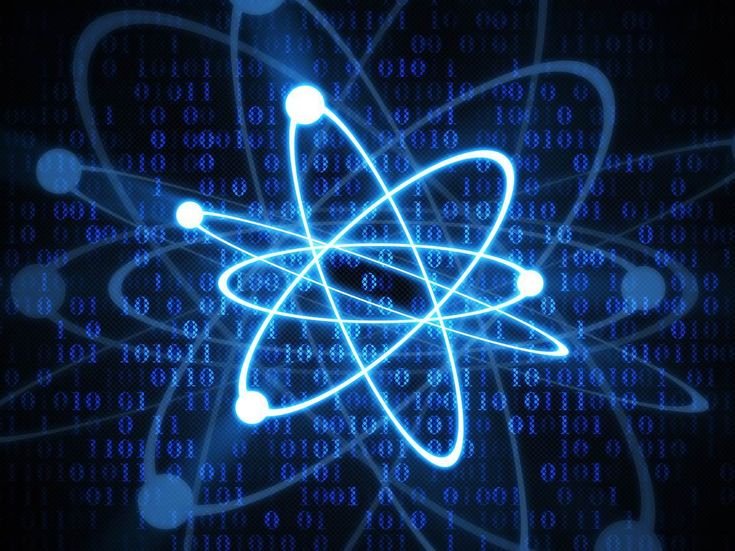
Smart contracts are a revolutionary technology in the realm of blockchain and cryptocurrencies, offering a new way to automate and enforce agreements without the need for intermediaries. These self-executing contracts with the terms of the agreement directly written into code have the potential to transform various industries by providing secure, transparent, and efficient solutions. This comprehensive article explores the concepts behind smart contracts, their advantages and challenges, and the wide range of applications they enable.
Understanding Smart Contracts
Definition and Origin
A smart contract is a self-executing contract where the terms of the agreement or transaction are directly written into code. The code and the agreements contained therein exist across a distributed, decentralized blockchain network.
The concept of smart contracts was first proposed by cryptographer Nick Szabo in the 1990s, but it was the advent of blockchain technology, particularly Ethereum, that made their implementation feasible on a large scale.
How Smart Contracts Work
Smart contracts operate on blockchain platforms, with Ethereum being the most prominent one. Here’s a step-by-step breakdown of how they work:
- Creation: A smart contract is created by writing code that specifies the terms of the contract. This code includes conditions, actions, and outcomes.
- Deployment: The contract is then deployed on the blockchain, where it becomes immutable and tamper-proof.
- Execution: Once deployed, the contract waits for the conditions specified in the code to be met. When the conditions are met, the contract executes the agreed-upon actions automatically.
- Verification: The blockchain network verifies the transaction, ensuring that it follows the agreed terms. This verification process is transparent and can be audited by all parties involved.
- Completion: Upon successful verification, the contract completes, and the outcomes are recorded on the blockchain.
Key Components of Smart Contracts
- Conditions: These are the prerequisites that must be met for the contract to execute.
- Actions: The operations that the contract performs when the conditions are satisfied.
- Outcomes: The results of the executed actions, which are recorded on the blockchain.
- Immutability: Once deployed, the code of the smart contract cannot be altered, ensuring trust and security.
- Decentralization: Smart contracts operate on a decentralized network, eliminating the need for intermediaries and reducing the risk of centralized points of failure.
Advantages of Smart Contracts
Automation and Efficiency
Smart contracts automate processes by executing actions automatically when conditions are met. This eliminates the need for manual intervention, reducing the time and effort required to manage contracts. Automation also minimizes errors and ensures that the contract terms are consistently enforced.
Transparency and Trust
All parties involved in a smart contract have access to the same information, ensuring transparency. The terms of the contract are encoded and stored on the blockchain, making them immutable and verifiable by anyone. This transparency fosters trust among participants, as they can be confident that the contract will be executed exactly as agreed.
Security
Smart contracts are secured by blockchain technology, which uses cryptographic methods to protect data. The decentralized nature of the blockchain makes it difficult for any single entity to alter or tamper with the contract. Additionally, once a smart contract is deployed, its code is immutable, preventing unauthorized changes.
Cost Savings
By eliminating intermediaries and automating processes, smart contracts can significantly reduce transaction costs. Traditional contracts often require intermediaries such as lawyers, notaries, and banks, which add to the overall cost. Smart contracts streamline these processes, reducing the need for middlemen and lowering expenses.
Accuracy and Precision
The code of a smart contract is precise and unambiguous, leaving no room for misinterpretation. This ensures that the contract terms are enforced exactly as written, reducing disputes and misunderstandings. The accuracy of smart contracts enhances their reliability and effectiveness.
Challenges of Smart Contracts
Legal and Regulatory Issues
One of the main challenges of smart contracts is the lack of a clear legal framework. While they offer numerous benefits, their enforceability under current legal systems is still uncertain. The decentralized and cross-border nature of blockchain technology further complicates regulatory oversight and jurisdictional issues.
Code Vulnerabilities
Smart contracts are only as secure as their code. Bugs and vulnerabilities in the code can be exploited by malicious actors, leading to significant financial losses. High-profile cases such as the DAO hack on Ethereum highlight the risks associated with poorly written smart contracts.
Scalability
As blockchain networks grow, the scalability of smart contracts becomes a concern. Executing complex contracts on a blockchain can require significant computational resources, leading to slower transaction times and higher costs. Scaling solutions, such as layer 2 technologies and sharding, are being developed to address these issues.
Privacy
While the transparency of smart contracts is an advantage, it can also be a drawback. The details of the contract are visible to all participants on the blockchain, which may not be desirable for all types of agreements. Solutions like zero-knowledge proofs and private smart contracts are being explored to enhance privacy.
Applications of Smart Contracts
Finance and Banking
Smart contracts have the potential to revolutionize the finance and banking industry by automating complex financial transactions and reducing the need for intermediaries. Applications include:
- Decentralized Finance (DeFi): Smart contracts enable the creation of decentralized financial applications, such as lending platforms, decentralized exchanges (DEXs), and stablecoins. DeFi platforms like Uniswap and Aave use smart contracts to provide financial services without traditional intermediaries.
- Automated Payments: Smart contracts can automate recurring payments, such as rent, salaries, and subscriptions, ensuring timely and accurate transactions.
- Escrow Services: Smart contracts can act as escrow agents, holding funds until the conditions of a transaction are met. This reduces the need for third-party escrow services and ensures secure transactions.
Supply Chain Management
Smart contracts can enhance supply chain management by providing transparency, traceability, and automation. Applications include:
- Track and Trace: Smart contracts can record every step of a product’s journey on the blockchain, providing an immutable record of its origin, handling, and delivery. This ensures transparency and helps prevent fraud and counterfeiting.
- Automated Payments and Invoicing: Smart contracts can automate payments and invoicing based on predefined conditions, such as the delivery of goods or completion of services. This reduces delays and errors in payment processing.
- Inventory Management: Smart contracts can automate inventory management by triggering actions, such as reordering supplies, based on real-time data. This ensures optimal inventory levels and reduces the risk of stockouts or overstocking.
Real Estate
Smart contracts can streamline real estate transactions by automating processes, reducing paperwork, and ensuring transparency. Applications include:
- Property Transactions: Smart contracts can automate property transactions, such as buying, selling, and leasing. The terms of the agreement are encoded in the contract, ensuring that all parties fulfill their obligations before the transfer of ownership.
- Title Management: Smart contracts can maintain a decentralized and immutable record of property titles, reducing the risk of fraud and simplifying title searches.
- Rental Agreements: Smart contracts can automate rental agreements by handling rent payments, security deposits, and maintenance requests. This reduces the need for intermediaries and ensures timely and accurate transactions.
Healthcare
Smart contracts can improve healthcare by enhancing data security, automating administrative tasks, and ensuring the integrity of medical records. Applications include:
- Medical Records Management: Smart contracts can securely store and share medical records, ensuring that only authorized parties have access to sensitive information. This enhances data privacy and reduces the risk of data breaches.
- Clinical Trials: Smart contracts can automate and streamline clinical trials by managing participant consent, data collection, and compensation. This ensures transparency and accuracy in trial processes.
- Insurance Claims: Smart contracts can automate insurance claims processing by verifying claims and disbursing payments based on predefined conditions. This reduces delays and errors in claims processing.
Intellectual Property
Smart contracts can protect intellectual property rights by providing a secure and transparent way to manage and enforce IP agreements. Applications include:
- Digital Rights Management: Smart contracts can automate the licensing and distribution of digital content, such as music, videos, and software. This ensures that creators receive fair compensation and prevents unauthorized use.
- Royalty Payments: Smart contracts can automate royalty payments based on predefined conditions, such as the number of downloads or streams. This ensures accurate and timely payments to creators.
- Patent Management: Smart contracts can manage patent applications, renewals, and transfers, ensuring that all parties fulfill their obligations. This enhances transparency and reduces the risk of disputes.
Government and Public Services
Smart contracts can enhance government and public services by providing transparency, reducing bureaucracy, and ensuring the integrity of processes. Applications include:
- Voting Systems: Smart contracts can enable secure and transparent voting systems by ensuring that votes are accurately recorded and counted. This reduces the risk of fraud and enhances trust in the electoral process.
- Identity Management: Smart contracts can provide a secure and decentralized way to manage digital identities, ensuring that individuals have control over their personal information.
- Public Procurement: Smart contracts can automate public procurement processes, ensuring that contracts are awarded fairly and transparently. This reduces the risk of corruption and enhances accountability.
Future Prospects of Smart Contracts
Integration with Internet of Things (IoT)
The integration of smart contracts with IoT devices can create powerful automated systems that respond to real-time data. For example, smart contracts can manage and automate the operation of smart homes, industrial machinery, and supply chain logistics based on sensor data.
Cross-Chain Interoperability
As multiple blockchain platforms continue to develop, ensuring interoperability between them will become increasingly important. Cross-chain smart contracts will enable seamless interactions between different blockchain networks, enhancing their utility and enabling more complex and integrated applications.
Enhanced Privacy Solutions
As privacy concerns grow, the development of privacy-focused smart contracts will become essential. Techniques such as zero-knowledge proofs and secure multi-party computation can enable confidential transactions and interactions, ensuring that sensitive information is protected.
Legal Recognition and Standardization
For smart contracts to reach their full potential, they need to be legally recognized and standardized. Efforts to create legal frameworks and standards for smart contracts are underway, which will enhance their enforceability and adoption across various industries.
Integration with Artificial Intelligence (AI)
The integration of AI with smart contracts can enhance their functionality and decision-making capabilities. AI algorithms can analyze data and make predictions, enabling smart contracts to execute more complex and adaptive actions based on real-time information.
Smart contracts represent a groundbreaking innovation with the potential to revolutionize various industries by providing secure, transparent, and efficient solutions. By automating processes, reducing costs, and enhancing trust, smart contracts offer numerous advantages that can transform the way we conduct transactions and manage agreements.
While there are challenges to overcome, including legal and regulatory issues, code vulnerabilities, and scalability concerns, ongoing advancements in technology and regulatory efforts are paving the way for broader adoption and more sophisticated applications.
The future of smart contracts is promising, with potential applications spanning finance, supply chain management, real estate, healthcare, intellectual property, government services, and beyond. As we continue to explore and develop this technology, smart contracts will play an increasingly important role in shaping the digital economy and driving innovation across industries.
ALSO READ: Textgain Presents New Language Model: CaLICO








